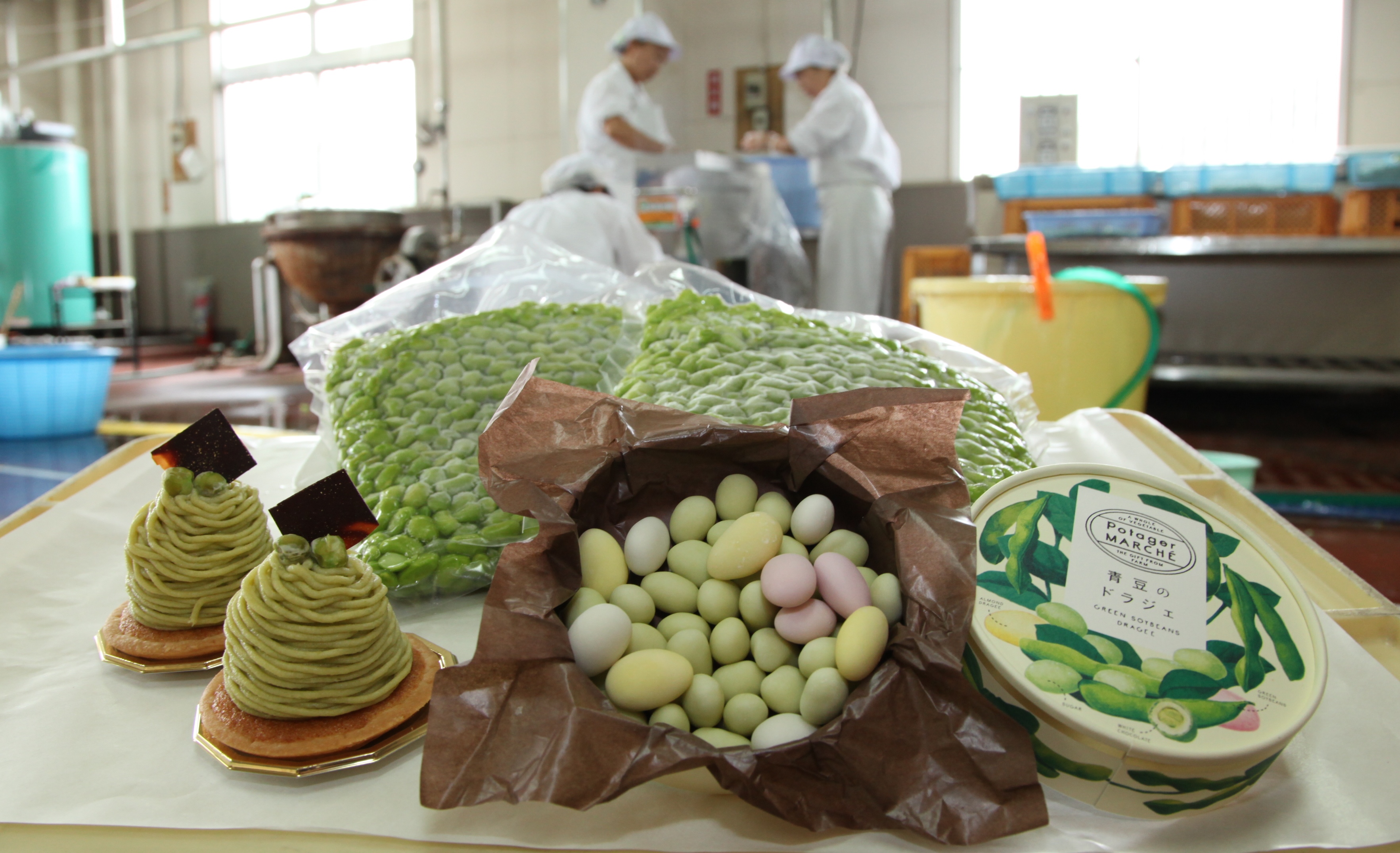Edamame green soybeans are becoming more than a classic sake nibble. Edamame produced by an agricultural cooperative in Daisen, Akita Prefecture (JA Akita Obako), is increasingly used as ingredients for other food products, especially desserts. Firms and hotels in Akita are developing original premium sweets using processed edamame, contributing to making Akita-grown beans more appealing.
JA Akita Obako is the top producer of edamame in Akita, with acreage of 181 hectares in fiscal 2013, 1.3 times as large as five years ago. Along with the expansion of production, the cooperative was faced with the need to cope with the increase of non-standard products. To raise farmers’ incomes and to respond to needs for safe, simple-to-cook products, the cooperative began selling frozen shelled edamame for use in school lunches. The product is used in such dishes as seasoned rice, soup and stew.
Frozen shelled edamame induced companies to come up with other ways of processing edamame, such as making them into paste, powder and freeze-dried food. Hotel Metropolitan Akita offers Mont Blanc cake using edamame paste instead of chestnut puree, which was favorably received by customers for its rich taste of beans. There are plans to use the paste also as an ingredient for ice cream.
In April, Akita Shokusai Produce, an Akita-based firm, began selling Green Bean Dragee, a freeze-dried edamame with chocolate coating. Although the product is relatively high priced at 1,260 yen for a 100-gram box, it is popular among women and businesspeople as gifts.
10,000 boxes prepared by the firm were sold out by the end of July, and the firm plans to sell them again starting in November. Kojiro Fujimura, the firm’s general manager in charge of marketing strategies, said the rich taste and flavor of Akita Kaori Goyo, the region’s original variety of edamame, were well received by many people, adding that the firm is going to develop another product using the beans.
In fiscal 2012, JA Akita Obako shipped around 6 tons of frozen shelled edamame, out of some 80 tons of non-standard products which occupy roughly 10 percent of total production. The cooperative entrusts processing companies to make non-standard edamame into paste, power or freeze-dried products. JA officials say they hope to increase sales of processed edamame by promoting the quality of their variety.
(Sept. 4, 2013)


